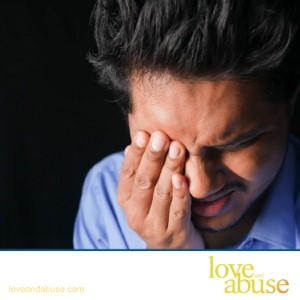
Victims of emotional abuse can experience physical pain from all the trauma, potentially leading to increased tolerance and resilience to harm.
They can gradually lose their identity due to the abuser’s actions, becoming a shell of their former selves.
I stumbled upon an old digital sticky note I wrote for myself that read, “What My Stepfather Did to My Mom.” It was a stark reminder of the enduring nature of abuse in a relationship that doesn’t end. Her life with him definitely inspired many of the episodes of my podcast, including this one:
If You Don’t Know Your Limits, You Won’t Have Any.
That episode outlines what happens when the emotionally abusive relationship never ends. It’s an important reminder that recognizing and setting personal boundaries is crucial for self-preservation.
This concept reminds me of childbirth. According to my partner, Asha, it’s an excruciating ordeal. However, the intensity of that pain seems to fade from memory, almost as if the mind can’t fully reengage with the agony of the past. It’s as if our bodies are wired to forget the pain to allow us to face the possibility of experiencing it again, such as having another child.
I see a parallel here with abusive relationships. A single incident of abuse might be downplayed in our memories, allowing for a dangerous increase in tolerance and resilience, trapping us in a cycle of mistreatment.
When an abusive episode occurs, its intensity might diminish in our recollection. It’s similar to the pain of a physical injury like a smashed thumb: excruciating at the moment and lingering for weeks, but as it heals, the vividness of the pain in our memory fades. If it didn’t, we might be plagued by PTSD, reliving the physically painful agony over and over again.
Yet, while physical pain may be hard to recall with the same intensity, the danger of being in an emotionally abusive situation persists. Abuse takes many forms: emotional, verbal, physical, sexual, and more. Some people endure a spectrum of these abuses, each leaving its own mark of pain, not always visible but certainly felt.
Verbal abuse often goes hand-in-hand with emotional abuse, sometimes overt and other times covert. All types of abuse, though they may not always result in physical pain as we traditionally understand it, inflict a profound emotional toll that manifests physically.
This is the peril of abusive relationships: once the immediate pain subsides, the danger is no less real, and the risk of remaining in harm’s way persists.
Indeed, in an emotionally abusive relationship, pain is a constant companion. It’s critical to acknowledge this pain, not because I wish for you to relive it, but to understand its significance. When pain is a persistent element of a relationship, it’s a clear signal that something needs to shift. The necessary change could be as direct as a heart-to-heart conversation, where you express your limits, saying, “I can’t endure this pain any longer.”
However, I recognize that this advice might not be easy to follow. You may have countless commitments and deep ties to the person causing you this pain. But it’s vital to remember that you’re experiencing real suffering when faced with any form of abuse or mistreatment.
And let’s be clear: no one deserves to be in pain.
Of course, we could argue that some people might ‘deserve’ pain, but not when you’re the one being wrongfully accused. Often, you believe you’re doing the right thing, only to be told the opposite, leading to hurt, guilt, and a sense of responsibility for all the relationship’s troubles. They can make you feel terrible just for being yourself, stripping away your right to self-expression.
This erosion of self can lead someone to become a shell of who they once were. Your original self gets gradually eroded, leaving very little of your former identity. But I assure you, there’s always a part of your old self lingering within. You can tell because there’s a part of you that rejects the mistreatment you’re enduring. If you dislike what’s happening, your true self is still fighting to surface.
That internal struggle is a sign that the essence of who you were is not gone—it’s just suppressed. You might be holding back your emotions out of confusion or fear of causing further issues.
Every time you stay silent, you’re repressing a piece of who you are, and that’s how you can end up feeling like an empty shell. I know it’s a grim picture, but it’s important to shine a light on this reality. Recognizing that you’re in pain when facing any type of abusive behavior is crucial because that pain is a signal that you’re being harmed.
Let me share with you this list I created of the things my stepfather did to my mom over the years. Bear in mind that this is only a glimpse into her experiences, but it’s crucial to share this with the world because of just how much she withstood for a staggering forty years. That’s four decades of enduring abuse. And unfortunately, what I’m about to share is only a fraction of what she went through.
She told me about the time he hurled a hammer at her, missing by a hair’s breadth as it whizzed past her ear. And then there was the time he shot an arrow from a bow, which struck the wall right beside her. I was utterly taken aback when I heard these stories; they were new to me and hard to fathom.
He once tried to strangle her and attempted to punch her. Another time, he threw her cat out of the window when she was moving in with a relative, callously telling her to take her “damn cat” with her. He also confessed to having sexual relations with his cousin during their marriage and admitted to cheating on my mom with another man’s wife.
Reflecting on their wedding night, she recalled him passing out on the floor at the reception, an ominous sign of things to come!
On another bizarre occasion, he abruptly left a restaurant, jumped out of the car, and ran all the way home.
I realize I’m airing his dirty laundry here, but I’ve kept their names anonymous. I doubt he listens to my show or reads these articles, but if he does, perhaps he needs to see this.
My mom, however, gave me the green light to discuss her life. She has moved on from her abusive past. And she’s supportive of me revealing her history to those who need to hear it.
I’m grateful for her openness because it has allowed me to talk about her and my stepfather in this article and my other podcast, The Overwhelmed Brain. It’s been enlightening and has helped me, and hopefully you and others in a similar position, gain perspective on the struggles some people face.
That’s why I create my show and this blog: to share what I’ve learned and what I continue to learn. It’s a reminder that life, especially relationships, isn’t supposed to be this hard, frightening, or painful.
The items on this list are harrowing. Some might deem infidelity as the ultimate betrayal in a relationship, but in comparison to the life-threatening and physically abusive acts my mom endured, infidelity pales. She even revealed that he hit her at least three times, something I didn’t even include on my list.
As a child, I often wondered, “Why on earth doesn’t she leave him?” But there are countless reasons why victims of abusive relationships stay. They may have numerous commitments, emotional ties, fears of the consequences of leaving, lack of financial resources, or no place to go.
If you’ve never experienced domestic violence or abusive behavior, I urge you not to judge the victims. They are often barely managing to keep afloat, struggling to survive. When you’re in survival mode, it’s incredibly challenging to access other resources, like finding a new place to live without money or support. Victims may be isolated from friends and family, with nowhere to turn.
If you’re in a precarious situation yourself, remember not to be too hard on yourself. It’s possible that you’re already facing enough adversity without adding self-criticism into the mix.
And I’m not talking about physical harm—though that’s a serious concern—but about the emotional toll. Don’t berate yourself because you’re already doing the utmost within your current capacity. Even if you think you could do more, trust me, you’re doing as well as you possibly can at this moment.
That’s not to say you’re stuck here; you’re not. It doesn’t mean you can’t make improvements tomorrow or find new strength next week. It doesn’t mean you shouldn’t consider planning for a brighter future.
If your relationship isn’t dangerously toxic and you have the opportunity for dialogue, there will come a time to have those tough conversations. Perhaps you’ll need to assert boundaries, saying, “This behavior has to stop because I can’t take it anymore. I’ve endured enough, and I can’t tolerate it any longer.”
Your words might be different, but the message is clear. Or it might come down to a firm “If you don’t stop, I’m leaving. That’s it. I’m done.”
Sometimes, though, words aren’t enough, and action is necessary. You may not feel ready for that step, and that’s perfectly okay—as long as you’re safe.
But if you’re in danger, it’s critical to accelerate your planning and find a way out. There are resources, including domestic violence hotlines, that can provide support. Emotional abuse is often recognized as domestic violence in many legal systems, so don’t hesitate to reach out for help if you’re facing extreme or hazardous conditions.
Sharing the list of abuses my mom faced was to illustrate the profound impact of pain and the ability to suppress it. She remembered the events but had to push through day after day, year after year, by denying the pain or the danger of her situation.
Her tolerance had grown so high that her benchmark became “At least I’m not dead.”
When your tolerance gets to the point where you think that, then it’s almost like saying, “I’ll stay in this situation until I’m dead.” And that is very blunt. I’m sorry, but it’s practically the same thing.
Thinking, ‘At least I’m not dead,’ is like telling yourself you’ll stick around until death happens.
I hope you never think or feel that. But I share that in an effort to make an impact in your soul and psyche. I want this to stir something within if you’re enduring more than you should—be it excessive hardship or outright abuse because it may be crucial to take action or speak up sooner rather than later.
This is also a reminder that real physical pain can accompany abuse and mistreatment. And it’s easy to downplay it as ‘not that bad because I’ve survived.’
But living in constant survival mode is no way to live; it’s merely existing on the edge, and that’s not what I want for you. I want you to lead a fulfilling life and to live the fullest expression of yourself because that’s what you deserve.
